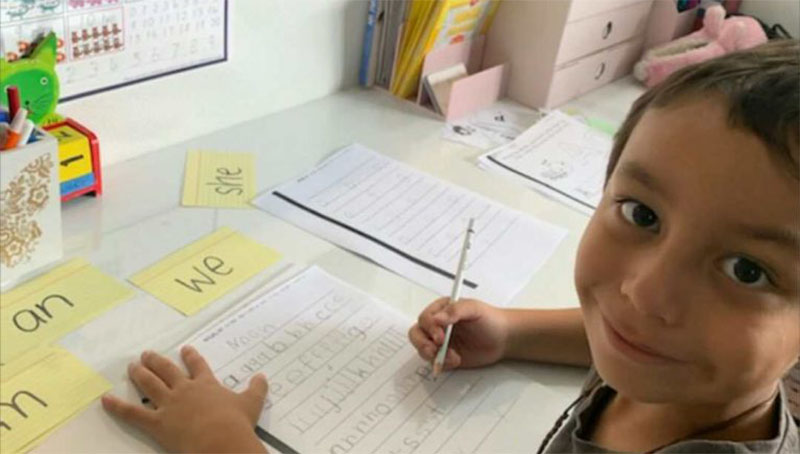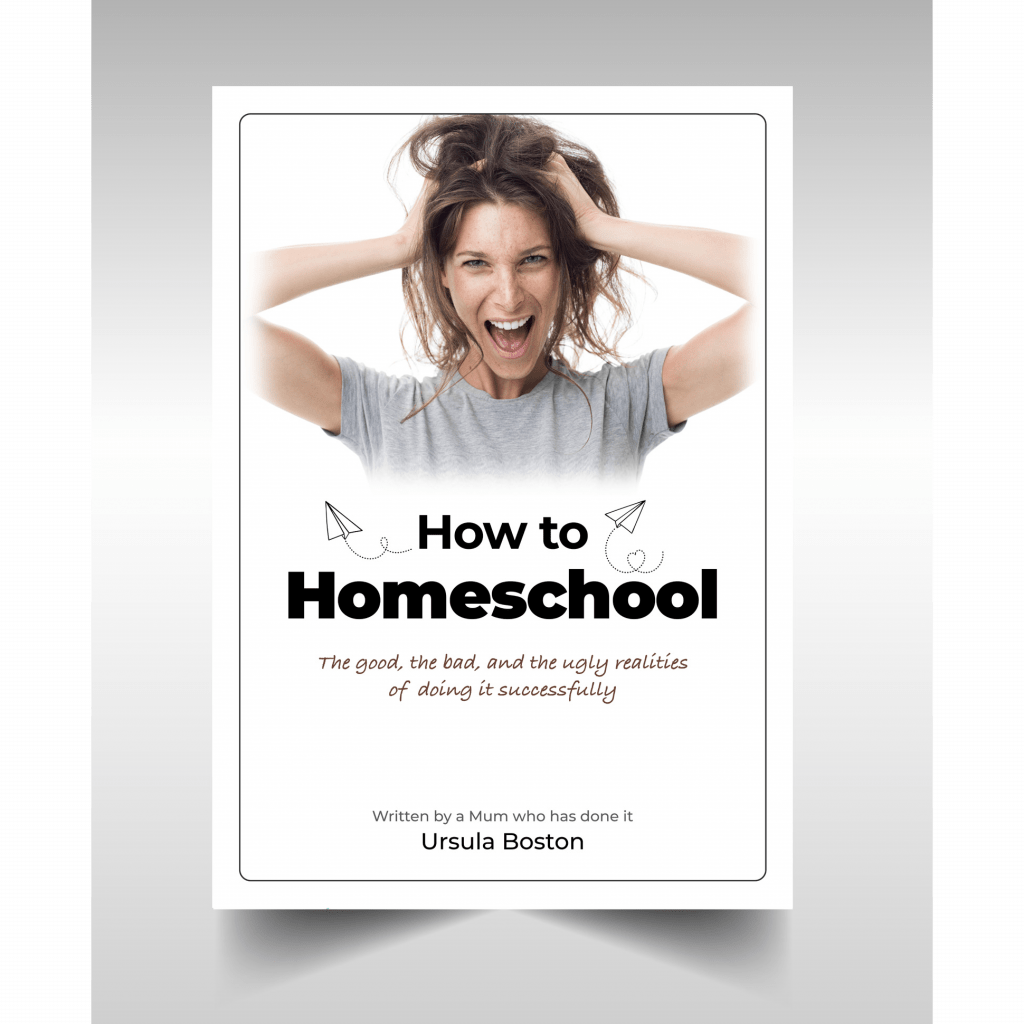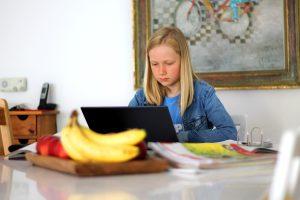This question is commonly asked and searched and we wonder why.
It seems realistic to presume that parents are comforted by the fact that they are not alone on the homeschool decision-making journey.
It is a huge decision to purposely take the road less travelled down the homeschool route. However in our society today it seems to be a choice that is not so weird or feared.
According to the National Center for Education Statistics (USA), the number of homeschooled students has been on a significant rise in recent years.
In 1999, there were only about 850,000 homeschooled students in the United States. By 2007, that number had grown to 1.5 million.
According to the National Household Education Survey (NHES) in 2016, 3.3% of students were homeschooled. In 2021, it was projected that 4.3% of students will be homeschooled. That number has now increased significantly.
The reasons for this trend are varied and complex, but many experts believe that increased dissatisfaction with the public school system is a major factor.
In addition, homeschooling has become more socially acceptable and parents have become more aware of the option thanks to the internet and other sources of information.
The number of homeschooled students is still relatively small compared to the overall student population in the United States.
In 2007, homeschooled students made up only 2.2% of all students enrolled in kindergarten through 12th grade.
However, the homeschooling movement appears to be gaining momentum and the trend shows no signs of slowing down.
How Many Students Are Homeschooled Worldwide?
There is no definitive answer to this question as homeschooling is not a regulated activity in most countries.
Around the world, the number of children who are homeschooled is on the rise. In the United States, for example, the number of homeschooled students has increased by 75% in the past decade.
However, estimates suggest that between 2% and 5% of school-age children are homeschooled worldwide.
This number is likely to be rising as more parents become interested in homeschooling as an alternative to traditional schooling.
Research also suggests that the COVID-19 pandemic also had an impact on the rising numbers. It seems that students who were forced to be homeschooled during lockdown actually enjoyed the change and also performed better results. Post lockdown many more families have continued to homeschool as a matter of preference. So it will be interesting to see upcoming statistics to verify an increase in popularity worldwide.
Why Parents Choose to Homeschool Their Children
There are a number of reasons why parents choose to homeschool their children. In years gone by it was usually because children were not living in populated areas with school access. Now the reasons are far more detailed and varied.
Some of the reasons include: wanting to provide more personalized education, wanting to give their children more exposure to their religious beliefs, or wanting to protect their children from negative influences in school.
Other reasons include: wanting to teach their children about a specific subject, such as music or art; or wanting to allow their children more time to pursue other interests, such as sports or hobbies.
Some parents also choose to homeschool because they feel that the public school system is not meeting their child’s individual needs.
Other families are choosing to travel and educate their kids on the road and provide more of a combined life education rather than a predominately academic education
Whatever the reason, parents who choose to homeschool their children often do so because they feel that it is the best option for their family and their child(ren).
Homeschooling can be a great way to provide a customized education for your child that suits their learning style. And best of all it can also be a bonding experience for the whole family that builds connection and comfort.
There are a few different ways to homeschool your children. Some parents choose to use a traditional curriculum, while others design their own curriculum or use a mix of both.
There are also a number of different homeschooling methods, such as the Montessori method or the Waldorf method.
No matter which method you choose, there are a few things that all homeschooling parents need to be aware of.
After all the quality of your family life is of most importance. We all want happy, healthy, and spirited children, and a family relationship that is connected and built on strong foundations.
However, homeschooling is not right for every child or family, and it is important to consider all of the pros and cons before making a decision.

What is a Typical Day Like for a Homeschooler
A typical day for a homeschooler is filled with a lot of play, reading, and fun learning.
It may be a learning environment that is a little bit structured like a school, with subjects and lessons at regular sessions throughout the day…or…it may allow more freedom with time and learning settings.
It may be reading a favorite book under a tree, or doing maths work in the kitchen baking cupcakes.
There is a lot of flexibility in homeschooling with time management and structure. These are as individual as each child.
Some kids are morning kids and thrive better with challenges and learning first thing, while others take a little time to warm up and get their brains focused and ready to absorb.
This is the wonderful thing about homeschooling, it can be as flexible and creative as a parent feels it needs to be for their kids.
It also allows for Homeschooled kids to have more time to explore their own interests and learn at their own pace.
What Does it Take to be Successful as a Home School Student
It takes a lot of work to be a successful home school student, especially for the older kids from middle to high grades. A big part of it is knowing what your desired goals are for the future. On top of this is having a steady study routine and being independently organized and motivated.
Self-motivation and discipline are important, especially if you plan on higher education like college or university.
Lastly, you need to be able to find and have access to good resources and materials to help you learn.
All of these things are important in order to be a successful home school student and achieve life goals.
Homeschooling vs. Public Schooling
There are many pros and cons to both homeschooling and public schooling. Some parents choose to homeschool their children because they feel that it offers a more personal and customized education.
Others choose public schooling because they believe that it offers a more well-rounded education, with more opportunities to socialize and interact with other children.
There is no right or wrong answer when it comes to choosing between homeschooling and public schooling. It ultimately depends on what you feel is best for your child and your family.
Some parents choose to homeschool their children because they feel that it offers a more personal and customized education. Homeschooling allows parents to tailor the curriculum to their child’s individual needs and interests. Additionally, homeschooling often provides a more relaxed learning environment, which can be beneficial for some children.
However, homeschooling also has its drawbacks. Because homeschooled children do not have the opportunity to interact with other children on a daily basis, they may miss out on important social skills. Additionally, homeschooling can be quite demanding on parents, as they must take on the role of both teacher and parent.
However, public schooling also has its drawbacks. Public schools can be large and impersonal, and some children may feel lost in the system. Additionally, public schools often teach to a standardized curriculum, which may not be the best fit for every child.
There is no right or wrong answer when it comes to choosing between homeschooling and public schooling. It ultimately depends on what you feel is best for your child and your family. If you are considering either option, be sure to do your research and talk to other parents
The Impact of COVID-19 on Home Schooling
The impact of COVID-19 on homeschooling in the United States is still relatively unknown.
Some families are choosing to homeschool their children out of an abundance of caution, others because it has had a positive impact on family life and the educational progress of their child(ren)
One potential downside of homeschooling during the pandemic is that it may exacerbate educational disparities between affluent and low-income families.
Families who can afford to homeschool their children have the resources to do so, while families who can’t have the same access to online learning resources or the flexibility to take on the role of teacher.
It’s still too early to tell what the long-term effects of homeschooling will be, but it’s clear that the pandemic has upended education in the United States in a way that is likely to have far-reaching consequences.
Conclusion
Homeschooling can be a fantastic, flexible, and freedom-giving opportunity for some families. If you are considering either a traditional school education or homeschooling your child it is essential that you consider what type of environment will work best for your child(ren) and the family’s needs before making any decisions.
These decisions include the financial, emotional, spiritual, and physical needs of all the family members. Homeschooling is not easy but it does have plenty of perks and no pay !!
For a limited time – I’m offering massive discounts for any first-time purchase. Use code ( first20off ) at checkout.

How to Homeschool – The Good the Bad and the Ugly Realities of Doing it Successfully
This is the book I wrote to my younger self about doing it successfully. Take it from someone who has been there.
It is everything I have learned from my 18 years as a full-time educator, mum, and housewife.
It is everything you need to get started.

About The Author
My name is Ursula Boston. I’ve been educating my daughters as a proud homeschool mum for nearly 20 years. Alongside managing our household and small business from home.
If you want to learn how to do this from someone who has actually done it. Twice! I will show you HOW.







